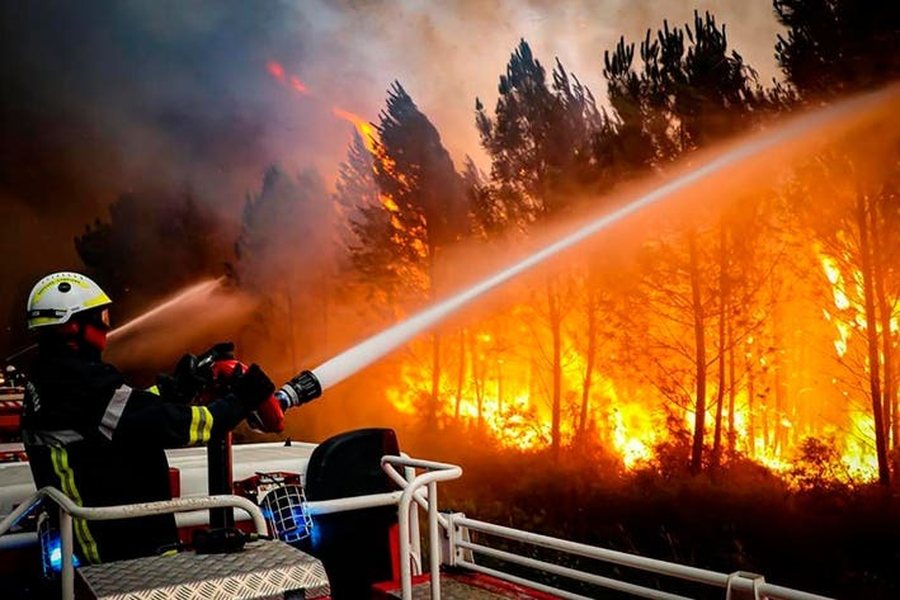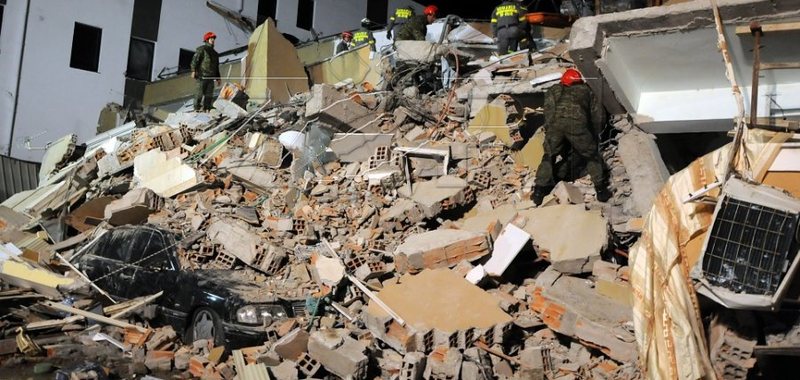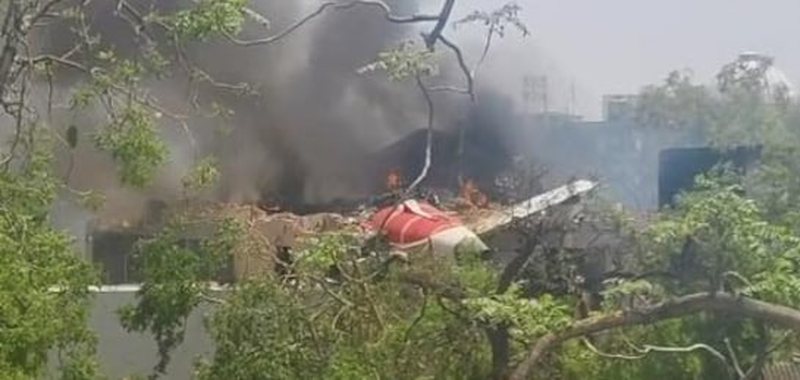“Mungon efikasiteti për mbrojtjen nga zjarret” - Auditorët kritikojnë BE-në për metodat e shpërndarjes së fondeve

Mungesa e të dhënave të përditësuara në hartë po e bën luftën kundër zjarreve në Evropë joefikase, tha Gjykata Evropiane e Auditorëve (ECA).
Raporti analizon se si disa shtete anëtare përdorin fondet e BE-së për të parandaluar zjarret. Ndërsa pranon investime të konsiderueshme në parandalim, Gjykata vëren se të dhënat e përdorura janë të vjetruara dhe ka pak monitorim të ndikimit aktual të shpenzimeve.
Raporti shqyrtoi projektet e financuara që nga viti 2014 përmes Fondeve Evropiane Strukturore dhe të Investimeve, si dhe Instrumentit të Rimëkëmbjes dhe Rezistencës në Greqi, Spanjë, Poloni dhe Portugali. Auditorët arritën në përfundimin se projektet e përzgjedhura për të marrë fonde të BE-së nuk synojnë gjithmonë zonat ku ndikimi do të jetë më i madh.
Për shembull, në Greqi ende përdoret një listë e hartuar mbi 45 vite më parë për zonat e rrezikuara nga zjarret në pyje, ndërsa një zonë pjesërisht e përmbytur në Portugali u prioritizua sepse harta e rrezikut ishte e vjetruar dhe nuk përfshinte një digë të ndërtuar disa vite më parë.
Ndërkohë, në disa rajone spanjolle, buxheti u nda në mënyrë të barabartë midis të gjitha provincave, pavarësisht rreziqeve dhe nevojave. Të tre shtetet, së bashku me Francën, janë tradicionalisht ndër vendet më të goditura të bllokut kur bëhet fjalë në këtë sektor.
Zjarret në pyje janë intensifikuar vitet e fundit me një mesatare prej më shumë se 5,200 kilometrash katrorë që digjen çdo vit gjatë katër viteve të fundit në të gjithë BE-në.
Shtetet anëtare i kanë përqendruar gjithnjë e më shumë përpjekjet e tyre në masat parandaluese. Në Portugali, për shembull, përqindja e shpenzuar për parandalim u rrit nga 20% në vitin 2017 në 61% në vitin 2022.
Në këtë situatë, ndikimi i vërtetë i fondeve të BE-së në trajtimin e zjarreve është i panjohur, thonë auditorët. Ata i bënë thirrje ekzekutivit të BE-së të promovojë praktikat për përzgjedhjen e projekteve, duke përfshirë përdorimin e hartave të përditësuara të rrezikut, kriteret e mbulimit gjeografik dhe ato të bazuara në rrezik.
Auditorët gjithashtu i kërkuan Komisionit të përdorë informacionin e disponueshëm në nivel BE-je përmes Sistemit Evropian të Informacionit për Zjarret në Pyje, që gjurmon zonat e djegura dhe flakët çdo javë në të gjithë bllokun.
Platforma tregon se më shumë se 168,000 hektarë janë shndërruar në hi deri më 10 qershor në të gjithë BE-në, pothuajse trefishi i sasisë së djegur në të njëjtën periudhë mesatarisht gjatë viteve 2006-2024. Këtë vit kanë shpërthyer rreth 911 zjarre, një numër gjithashtu 2.5 herë më i lartë.

Rreziqet e sulmeve kibernetike ndaj Shqipërisë - AKSK përgatit një metodologji të re që i vlerëson sipas sektorëve
Autoriteti Kombëtar për Sigurinë Kibernetike (AKSK) ka përgatitur një metodologji të re e cila do të identifikojë rreziqet kibernetike sipas sektorëve dhe......

Shqipëria, në “hartën e kuqe” sizmike? - Probabiliteti për t’u prekur nga tërmetet është rritur
Rajoni i Ballkanit duket më i rrezikuar se kurrë nga tërmetet, sipas gjetjeve të një grupi ekspertësh dhe pedagogësh të specializuar në sektorin e rrezikut......

Indi, avioni me 242 pasagjerë rrëzohet gjatë ngritjes - Mjeti fluturues përplaset me godinat e banuara pranë aeroportit
Një aeroplan i Air India që udhëtonte për në aeroportin Gatwick të Londrës është rrëzuar gjatë ngritjes në aeroportin e Ahmedabad. Sipas të dhënave, avioni......

Revolucioni i “paprecedentë” i IA - Studimi: Teknologjia e re po përhapet me ritme historike
Rritja e inteligjencës artificiale në jetën tonë është zyrtarisht e paprecedentë, sipas të dhënave të fundit. Një raport prej 340 faqesh tregoi ritmin e......

Shqipëria, “atdheu” i dytë i italianëve? Në 4 muajt e parë të vitit hynë rreth 301 mijë shtetas
Sipas të dhënave më të fundit nga INSTAT, pas shqiptarëve të Kosovës që tradicionalisht kryesojnë në numrin e hyrjeve në Shqipëri, italianët janë të dytët......

Maji 2025, i dyti më i nxehtë në histori - Evropa Veriperëndimore përjetoi pranverën më të thatë në dekada
Muaji i kaluar ishte maji i dytë më i nxehtë i regjistruar ndonjëherë në botë, kanë zbuluar shkencëtarët evropianë. Kjo të krijon ndjesinë e një déjà vu?......

Nis kontrolli i apartamenteve AirBnB dhe Booking - Plani i turizmit/ Tatimet, verifikime në terren në periudhën Qershor-Shtator
Të gjithë individët apo subjektet që japin apartamente me qira përmes platformave Booking dhe AirBnB përgjatë këtij sezoni turistik veror do të monitorohen......

Lehtësi bizneseve drejt tregut të BE - Drejtorët e doganave të BE dhe Ballkanit Perëndimor, konferencë në Tiranë
Integrimi ekonomik në tregut të përbashkët Europian përmes reduktimit të barrierave doganore, lehtësimit të shkëmbimeve tregtare, sigurisë kufitare dhe......

















